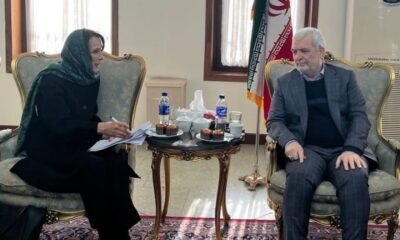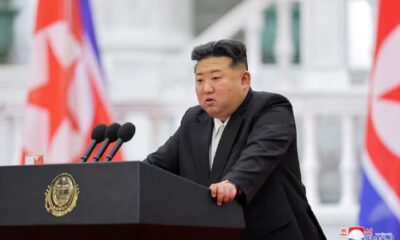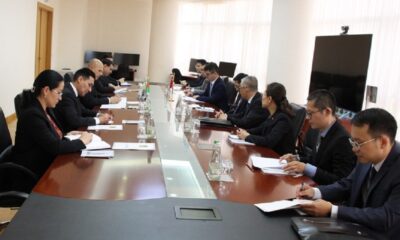Latest News
A new plan to ‘fix the war’ with a Bonn-style conference: AAN report
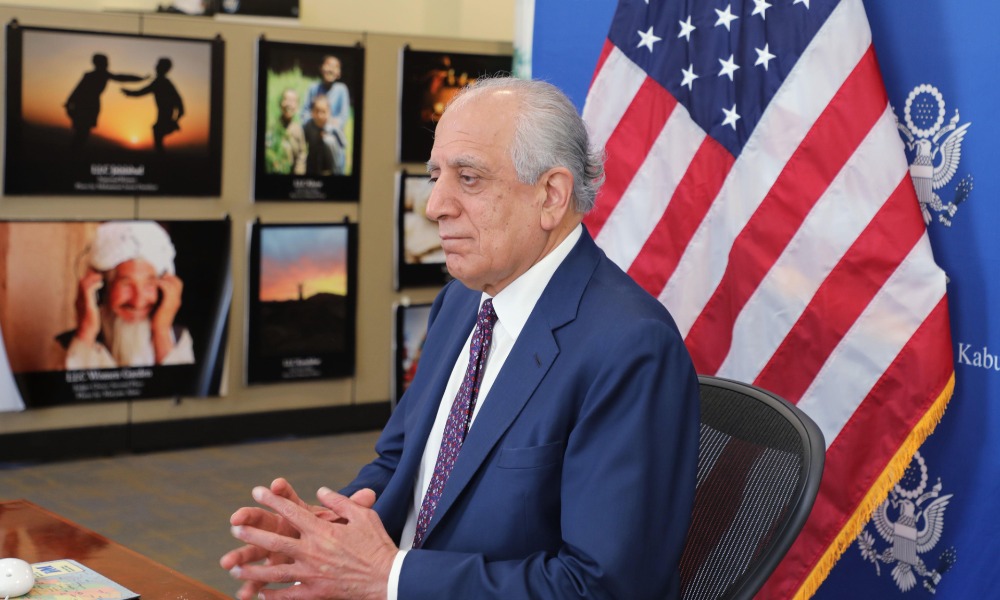
US peace envoy Zalmay Khalilzad has in the past week proposed the possibility of a Bonn-type conference that could cancel or sideline the intra-Afghan peace talks currently underway in Doha.
According to Afghanistan Analysts Network (AAN), “Bonn 2” appears to have been discussed in a number of capitals and with various Afghan leaders.
The proposal appears aimed at ensuring a US troop withdrawal that would not look like Washington is cutting and running, AAN stated adding that any new power-sharing agreement reached as a ‘quick fix’ to the conflict would be inherently risky.
This could include increased conflict and the breaking down and loss of whatever stability and systems Afghanistan now enjoys.
AAN’s Thomas Ruttig, who was at the first Bonn conference as part of the UN team, argues that the situation in Afghanistan in 2021 is anyway so very different from those in 2001 that calling for a Bonn 2 conference to resolve the conflict is disingenuous.
Ruttig states that according to sources, the US envoy told Afghan politicians that the peace talks in Doha will be sidelined and that a Bonn Conference-style meeting will be held at the international level to discuss the prospect of a participatory government that would include the Taliban.
“A grand international conference that will be similar to the Bonn Conference will be held, in which the Taliban and the republic side will participate at the leadership level. At the same time, the international community, including the United States and the regional countries, will reach a political agreement that will take its legitimacy from the international community.
“However, the national legitimacy (agreement of the potential conference) would take its authority from the traditional Loya Jirga,” said Shahzada Massoud, a close aide to former president Hamid Karzai, AAN reported.
AAN stated that Khalilzad had reportedly carried a special letter from the US Secretary of State Antony Blinken to President Ashraf Ghani and Abdullah Abdullah, Chairman of the High Council for National Reconciliation (HCNR), calling on them “to speed up the peace process and build an internal consensus to negotiate with the Taliban on a new level,” and to prepare for a “Bonn model” conference with the Taliban, hosted by Turkey in Ankara “as soon as possible.”
According to the report, the new plan seems inspired by the desire to meet the short, albeit formally conditional, timeline that was established by the year-old US-Taliban agreement for the withdrawal of US and other troops by 1 May 2021.
Khalilzad’s hope, apparently, is that a Bonn-style conference could result in a quick power-sharing agreement (or, similarly to the approach to that before the February 2020 Doha deal with a Taliban, with a ‘framework’ agreement as a first step).
His proposal would appear to mean the end or sidelining of the intra-Afghan talks in Doha where the Taliban and Islamic Republic of Afghanistan (IRoA) have yet to agree on an agenda, AAN reported.
AAN stated that his proposal might be primarily aimed at providing cover for the US troop withdrawal by 1 May, or alternatively include conditions for a delayed final withdrawal. Such an agreement would also allow the new US government to sidestep the thorny issue of whether the Taliban have fulfilled their commitments to the bilateral February 2020 Doha deal, with regard to cutting ties with al-Qaeda.
AAN stated that at least ten political leaders have agreed to the plan: President Ashraf Ghani, along with his two deputies, Amrullah Saleh and Sarwar Danesh; Abdullah Abdullah; former president Hamid Karzai and factional leaders Muhammad Mohaqeq, Muhammad Karim Khalili, Abdul Rashid Dostum, Abdul Rab Rasul Sayyaf and Yunes Qanuni.
The plan reported includes a handover of power from the current government to a transitional one, after “agreement on basic issues” in Ankara and in the presence of US and NATO military forces “in order to maintain political stability.”
The transitional government, reported AAN, could include leaders from Afghanistan and the Taliban but it is not clear how a transitional administration would become a permanent government.
Before Khalilzad arrived in Kabul last week, he had a stopover in Berlin. AAN reported it is likely Khalilzad discussed this plan with Berlin before heading to Afghanistan.
According to AAN, a first indirect reaction from the Afghan government to the Bonn 2 proposal came late on 3 March, from National Security Adviser Hamdullah Moheb, who said the government was “holding discussions about a wide range of alternatives” with various factions to achieve peace in the country.
He said any option needed “guarantees'' from the international community and the Taliban. On 6 March, however, when opening the spring session of the Afghan parliament, Ghani indirectly rejected parts of the new US plan in a speech, particularly ideas of a non-elected government.
He reiterated that the transfer of power through elections was “a non-negotiable principle for us” and, tha the constitution would determine the country’s future, rather than other people’s plans.
He also said, however, that he was “ready to discuss the holding of a free, transparent, and countrywide election under the management of the international community” and that “[w]e can also talk about a date and reach a conclusion.”
Ghani did not refer to the idea of holding a new international conference.
AAN reported that it is interesting that Khalilzad chose to frame his plan as a ‘Bonn-style’ agreement, deliberately suggesting that it is possible to turn back history, press the restart button, deal the cards again – largely with the same factions, in some cases even the same individuals, but this time, with the Taliban at the table.
AAN stated that many authors and commentators, in hindsight, have described the fact that the Taliban were not included in Bonn 1 as one of its main mistakes.
In conclusion, AAN reported that the plan to hold a new “Bonn-style conference” prioritises US interests and timelines even more than the Doha agreement did.
Even if the Taliban agreed to a ‘Bonn 2 formula’, this would leave the causes of conflict unaddressed. It would hand the implementation of an agreement to parties who so far and to varying degrees have not been willing to seriously negotiate with each other or share power.
To only have armed factions at the negotiating table would again undercut the principle of broad participation, including of women’s organisations and other civil society groups, and would limit the chances of a peaceful future. It would repeat a major mistake of Bonn 1 where civilian political forces were not invited to the table, AAN reported.
However, if both sides could be brought to agree to a deal and even some form of truce, and troops withdrew, with the departing soldiers would go much of the remaining international attention on Afghanistan.
AAN reported that international powers would then have even less leverage on the Afghan parties, but might also have less interest, once their military engagement was over.
Latest News
Iran’s envoy meets UNAMA deputy, stresses cooperation with Afghanistan
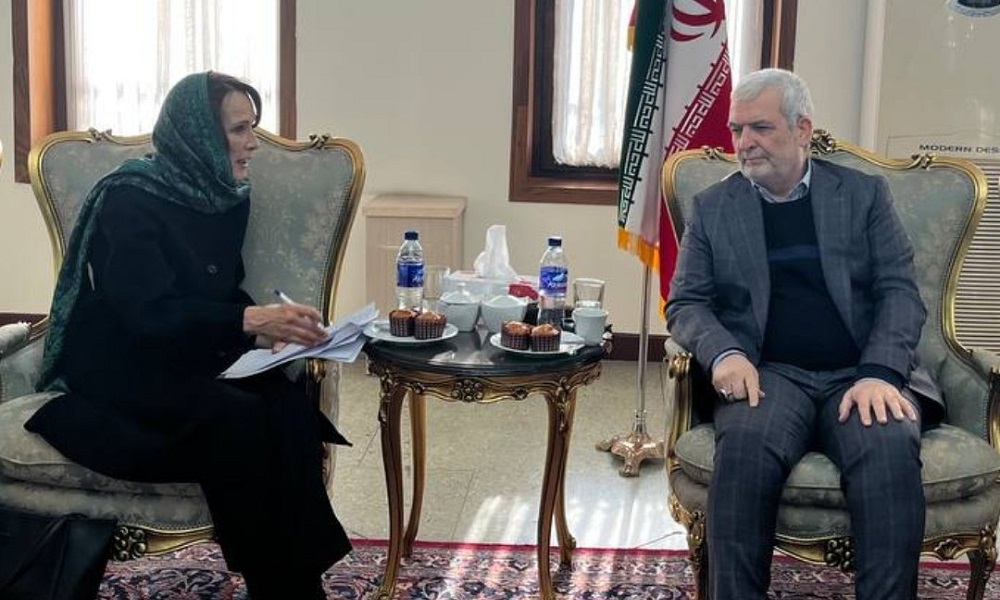
Hassan Kazemi Qomi, Iran's ambassador and special representative for Afghanistan met late Thursday with Georgette Gagnon, UNAMA’s deputy special political envoy for Kabul and they stressed the increase of cooperation with Afghanistan, the embassy said in a statement.
In this meeting, Qomi told Gagnon that Iran would support any initiative taken by the international community for Afghanistan.
In the meeting of Georgette Gagnon with Mr. Kazemi, the issue of narcotics and the presence of the private sector in Afghanistan were discussed, and Iran supports any constructive initiative of the international community for Afghanistan,” according to the statement.
Experts, meanwhile, believe the solutions of the United Nations to cooperate with Afghanistan's neighboring countries in consolidating stability and security can solve key issues such as terrorism and immigration.
Some experts consider strengthening Iran's partnership and cooperation with the UN for greater stability in Afghanistan is important and necessary.
However, Iran has not yet recognized the caretaker government of Afghanistan and has repeatedly emphasized the establishment of a comprehensive government in the country.
Over the past three years, Iran has established good relations with the Islamic Emirate, and trade between the two countries has increased.
Meanwhile, Tehran has previously opposed the appointment of a special representative for Afghanistan by the United Nations.
Latest News
Ten people killed in Baghlan attack

Ten people were killed by unknown individuals in Afghanistan’s northern Baghlan province on Thursday night, police said on Friday.
The incident happened as the victims were doing Zikr at a mosque in Shahr-e-Kuhna of Nahrin district, police said in a statement.
The statement said that they used to regularly go to mosques and monasteries at night after returning from work.
Abdul Ghayoor Khadim, a provincial police official, said that several people were arrested in connection with the incident, adding that an investigation was launched.
Latest News
Chinese, Turkmen officials meet to discuss Afghanistan
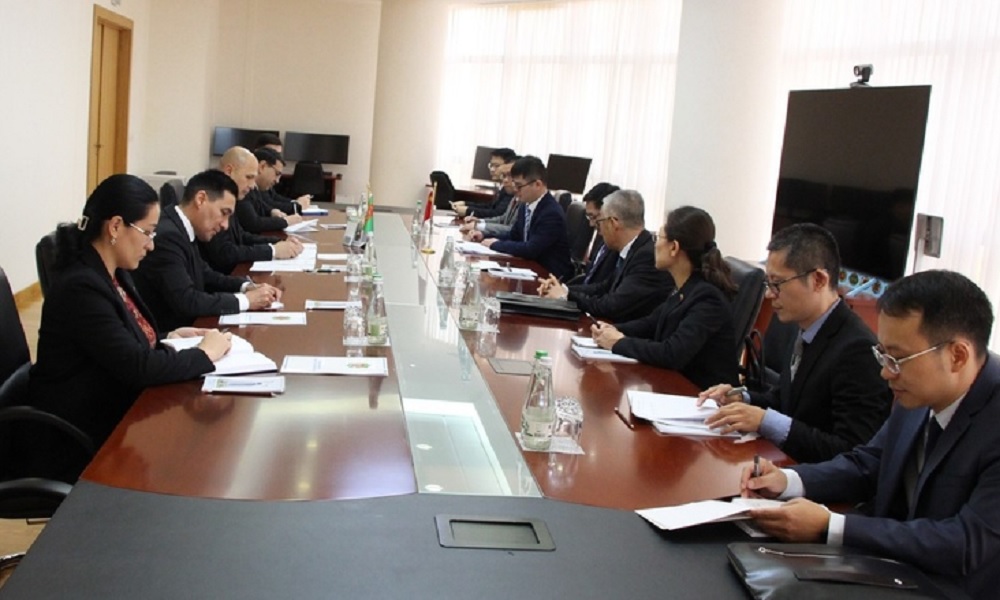
Deputy Minister of Foreign Affairs of Turkmenistan Serdar Muhammetdurdiyev on Thursday met with Chinese special envoy for Afghanistan, Yue Xiaoyong, the Foreign Ministry of Turkmenistan announced.
During the meeting, the sides discussed priority vectors of strategic interstate cooperation built on a long-term, mutually beneficial basis, as well as exchanged views on the implementation of previously reached agreements.
It was noted that personal contacts between the leaders of the two countries play a key role in intensifying the interstate dialogue, which give a strong impulse to further development and expansion of Turkmen-Chinese ties.
It was emphasized that Turkmenistan considers multilateral international platforms for maintaining stability in Afghanistan as an important factor in promoting sustainable improvement of socio-economic state of the neighboring country. The sides exchanged views on the preparations to the 5th meeting of Foreign Ministers of Afghanistan's Neighboring States to be held in Turkmenistan.
The interlocutors reaffirmed that Turkmenistan and China will continue to provide all-round support for the economic restoration of Afghanistan.
-

 Sport4 days ago
Sport4 days agoAbu Dhabi’s thrilling T10 tournament just days away
-

 World5 days ago
World5 days agoBiden allows Ukraine to use US arms to strike inside Russia
-

 Sport4 days ago
Sport4 days agoAfghanistan beat UAE by 169 runs in U19 tri-series
-

 Latest News3 days ago
Latest News3 days agoTajikistan trumps Afghanistan 3-1 in football friendly
-
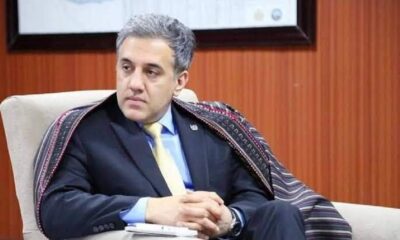
 Latest News4 days ago
Latest News4 days agoTwo Afghan diplomats posted to Germany under former government resign
-
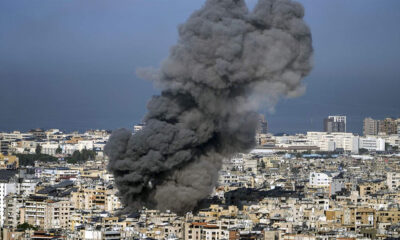
 World3 days ago
World3 days agoLebanon, Hezbollah agree to US proposal for ceasefire with Israel, Lebanese official says
-
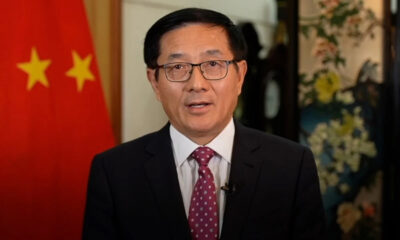
 Latest News4 days ago
Latest News4 days agoChina’s envoy says Beijing never interferes in Afghanistan’s internal affairs
-

 Latest News2 days ago
Latest News2 days agoEU marks International Children’s Day, says it supports Afghan children


